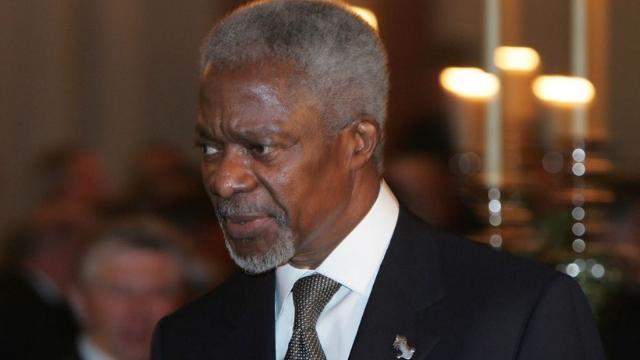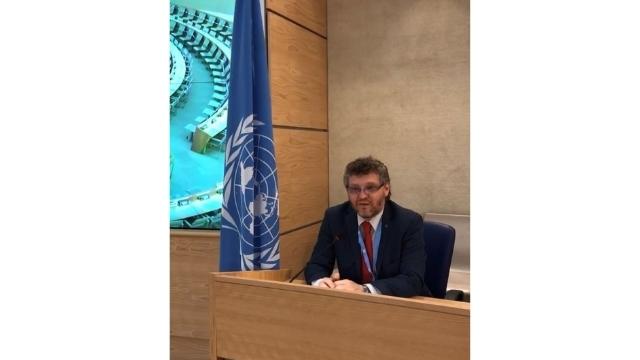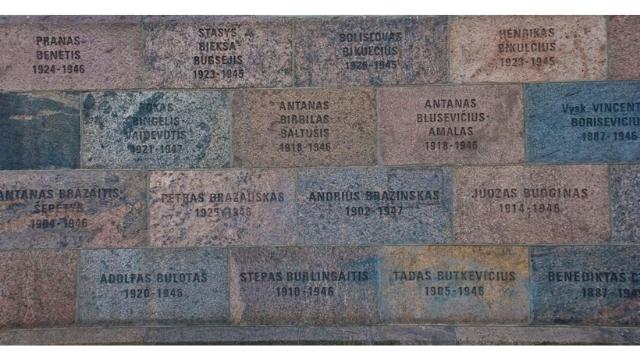11/24/2021ROSITA ŠORYTĖ A+ | A-
U.N. documents and Lithuanian cases about transitional justice indicate a road that is relevant for Taiwan as well.
by Rosita Šorytė*
*A paper presented at the mid-term conference of the Research Committee on Sociology of Religion (RC-22) of the International Sociological Association, Vilnius, Lithuania, November 11–14, 2021.

In United Nations’ jargon, “transitional justice” means “a society’s attempt to come to terms with a legacy of large-scale past abuses, in order to ensure accountability, serve justice and achieve reconciliation.” This definition comes from one of the most comprehensive U.N. documents on the matter, then Secretary-General Kofi Annan’s report to the Security Council on “The Rule of Law and Transitional Justice in Conflict and Post-Conflict Societies,” dated August 23, 2004.
The problem of “transitional” justice, as its name indicates, arises when a country transitions from a non-democratic regime where human rights were systematically abused to a democratic one. Justice would require that those responsible for past abuses be punished, and the victims indemnified.
Some may ask how my paper exactly fits in a session about Taiwan. It may come as a surprise to some that in Taiwan, which was once governed by an authoritarian regime, transitional justice has become an important political and even electoral issue. Professor Tsai will examine how and why this happened in the next paper of this session.
In this paper, I will discuss two issues. First, I will examine some United Nations documents on the issue of transitional justice. Second, I will say a few words about the issue of transitional justice in Lithuania, not only because I am Lithuanian and this conference takes places in Lithuania, but because Lithuanian cases have led to a number of significant decisions by the European Court of Human Rights on transitional justice. I will conclude on how these two points are relevant for Taiwan.
Some can argue that transitional justice was part of the very process that led to the establishment of the United Nations, since as a way to prevent any resurgence of Nazism, Fascism, and Japanese militarism the powers that won World War II wanted to make sure that war criminals will be punished. This led to the Nuremberg and Tokyo trials.
The United Nations themselves, on the other hand, have acknowledged that the concept of transitional justice, that goes beyond punishing war criminals, was born in the 1980s with the transition to democracy first of military regimes in Latin America, then since 1989 of countries in Eastern Europe that were once part of the Soviet bloc.
U.N. documents emphasize the importance of a decision of 1988 by the Inter-American Court of Human Rights concerning Honduras. This famous case goes under the name “Velásquez Rodríguez,” which was the last name of one of the many citizens of Honduras that “disappeared,” and never reappeared, at a time when Honduras was under a military dictatorship.
The decision established four key principles of transitional justice. First, human rights violations that happened when a non-democratic regime was in power should be investigated, and the truth should be told to the country’s public opinion. Second, perpetrators should be punished. Third, victims should be indemnified. Fourth, measures should be taken to make sure that human rights violations, which unfortunately may continue to take place even in democratic countries, will not happen again.
All the elements of transitional justice were defined by the Velásquez Rodríguez decision, although the words “transitional justice” were not used. These started being used by legal scholars in the 1980s. The term became common in the 1990s, until in 2001 the International Center for Transitional Justice was founded in New York by South African white Methodist ordained elder Alex Boraine, who had been the main architect of the Truth and Reconciliation Commission in South Africa after the apartheid.
Initially, the attention of the United Nations was focused on one of the elements of transitional justice, punishing the perpetrators. This appeared urgent in light of the carnages perpetrated in the former Yugoslavia and Rwanda, which proved that, most unfortunately, mass violation of human rights and even genocides had not ended with the Cold War.
The early 1990s saw the creation of the Office of the Special Rapporteur on the impunity of perpetrators of violations of human rights and the institution of U.N.-controlled International Criminal Tribunals for the former Yugoslavia in 1993 and for Rwanda in 1994.
However, the concept of traditional justice had other aspects, in addition to bringing perpetrators to justice. This was gradually recognized by the U.N., and led to Kofi Annan’s report I mentioned earlier. Finally, in 2011, the Special Rapporteur on the impunity of perpetrators of violations of human rights was replaced by a Special Rapporteur on the promotion of truth, justice, reparation and guarantees of non-recurrence.
The change in the title meant that the Special Rapporteur should deal with all dimensions of transitional justice, not preventing impunity of perpetrators only. This position still exists, and in 2018 Fabián Salvioli of Argentina, a law professor and lawyer who had studied and litigated cases of transitional justice after the fall of the military regime in his country, was appointed as Special Rapporteur.

I come now to my second part, transitional justice in Lithuania. The United Nations have acknowledged that an important partner for them in defining and promoting transitional justice is the European Court of Human Rights. Lithuania offers a good example both of how the European Court became very active in defining the scope and limits of transitional justice, and how the situation of post-Communist countries in Eastern Europe raised some politically sensitive and delicate issues.
For those in the audience who are not Lithuanian, let me remind them that Lithuania was annexed by the Soviet Union in 1939, with the acquiescence of Nazi Germany, pursuant to the infamous Molotov-Ribbentrop pact. However, when Germany went to war with Russia, Lithuania was occupied by the Germans between 1941 and 1945. As the war progressed, Germans and Russians fought for Lithuania in 1944 and 1945, and, as the Germans lost the war, Lithuania was occupied again by the Soviets, and regained its independence only in 1991.
Both the Nazis and the Soviets committed gross violations of human rights in Lithuania, and both of them had Lithuanian collaborators, although of course the Soviet occupation lasted for a much longer period.
After 1991 the new democratic and independent Lithuania had to confront all the typical issues of transitional justice.
One of the first to be addressed had to do with religious liberty, and it was the restitution of the communal properties belonging to the Catholic Church and other religious institutions. Churches, temples, synagogues and Jewish cemeteries had been destroyed in Soviet times, or turned into museums, factories, and even warehouses and stables.
In Vilnius, the cathedral became a picture gallery and the historical church of Saint Casimir was converted into a Museum of Atheism. After independence, places of worship and other religious buildings were given back to the different religious organizations.
The process, regulated by a 1995 law, went up smoothly enough, except for the Jewish community, with which three problems existed. The first was who would represent the Lithuanian Jews, most of whom had left Lithuania and lived in the United States or Israel, in negotiations with the Lithuanian government. In 2005, a Jewish Heritage of Lithuania Foundation was founded in the United States, under the aegis of the American Jewish Committee.
In 2006, the 1995 Lithuanian law was amended, and the Foundation was recognized as the sole body entitled to the restitution of Jewish religious properties in Lithuania. However, other Jewish organizations objected that this was unfair, because in their opinion the Foundation did not represent the interests of all Jews of Lithuanian origin.
A second point of contention was about the number of communal properties of the Jewish communities whose pre-World-War-II ownership could be documented. A third point concerned the direct intervention of the United States that, based on an agreement signed in 2002 on the reciprocal protection of cultural places of national concern, informed Lithuania in 2006 that some 100 synagogues and Jewish burial grounds there were of American interest because the descendants of these Jews lived in the U.S.
The issue died down when Lithuania, in 2007, in turn formed a commission that listed more than 100 Lithuanian churches that had been demolished or were in a state of disrepair in the United States.
The issue of Jewish properties and restitution remains politically sensitive in Lithuania, as proved by controversies concerning the Soviet Palace of the Culture and Sports in Vilnius, which is in a destitute state and was built by the Soviets in an area where an historical Jewish cemetery was once located.
Lithuania planned to demolish the Soviet Palace and build there a conference center, while the Jewish community wanted it back to restore or rebuild the cemetery. It was becoming a heated issue when in August 2021 the Lithuanian government announcement that plans to build a conference center had been shelved indefinitely due to how COVID-19 had changed the market for international conferences.
Cases about religious properties did not reach the European Court of Human Rights, however, some cases concerning the broader issue of restituting private properties to the owners who had them confiscated by the Soviets or their descendants did. This was a more complicated issue than it may seem.
After more than fifty years of war and occupation to whom exactly properties belonged was not always clear, and the process involved a good deal of administrative corruption. The law of 1990 governing the issue was amended several times, yet all versions maintained that only Lithuanian citizens should benefit of the restitution.
In 2009, in the decision Shub versus Lithuania, the European Court of Human Rights decided that this does not create an illicit discrimination. The court stated that states that adopt a politics of restitution in furtherance of transitional justice have the right to implement it as they deem fit.
Note, however, that in several cases the court, as recently as 2018, as sanctioned in Lithuania for the excessive length of the restitution process. For instance, in the admittedly extreme case of Beinarovič and Others the Court found that a case properly submitted in 1991 had still not been solved after more than 25 years. This irresistibly reminds me of the 25-year length of the Tai Ji Men case in Taiwan, and of Professor Jacobsen’s comment on it that “justice delayed is justice denied.”

As several other former Communist countries, Lithuania enacted a law on so-called lustracija (Люстра́ция), excluding people who had collaborated with the KGB and other Soviet agencies responsible for violations of human rights from certain jobs and from running for office in elections. Several of those affected by the law took their cases to the European Court of Human Rights. The Court ruled that to protect the newly born democracy a law on lustracija was reasonable in general. However, it indicated two limitations.
First, it found, against Lithuania, that the law cannot prevent former KGB agents or informants from working in the private sector. Second, the Court warned that lustracija laws cannot be permanent, and should last for a reasonable time only after the transition to democracy, except in special cases of persons individually responsible of atrocities or having hold leadership position in organizations (such as the KGB) guilty of gross violations of human rights.
Other cases that went to the European Court dealt with crimes against human rights committed by Soviet collaborators. It is interesting to note the difference between two cases concerning the criminal prosecution in Lithuania of former Soviet officers who were part of the repression and killing of Lithuanian partisans in the 1950.
In the case of Vasiliauskas, in 2015, the court found against Lithuania, accusing it of trying to apply its own laws retroactively and prosecute former Soviet soldiers for their “participation in a genocide” without clarifying to which definition of genocide it was referring to, or investigating the individual responsibility of the defendants.
In 2019, in the Drėlingas case, the European Court agreed that Lithuanian judges had taken the Vasiliauskas case into account, and were now rendering unobjectionable decisions that clarified in which specific genocidal actions or war crimes the defendants had participated.
While the Drėlingas decision has confirmed that it is a legitimate part of transitional justice in Lithuania to prosecute former Soviet officers of collaborators and convict them when they are guilty of specific (as opposite to generic) offenses, I would not omit to mention a sensitive political issue.
Lithuanian courts and governments have been accused by legal scholars and politicians, both at home and abroad, of having applied transitional justice selectively, by punishing those responsible of atrocities during the Soviet period and ignoring those who had collaborated with the Nazis, even celebrating them when, after having been Nazi collaborators, they had become anti-Soviet partisans.
As a legal issue, it is now largely moot as almost all Nazi collaborators have now died (although Germany in the last two months started trials against a 100-year-old former concentration camp guard and a 96-year-old female camp secretary). It remains however a political and cultural issue, and many believe Lithuania as a mature democracy should now sincerely confront all its past, and recognize that there were Lithuanians, including some who later fought against the Soviets, who were co-responsible for Nazi atrocities.

In conclusion, what does all this tell us about transitional justice in Taiwan? I believe there are valid lessons in the United Nations experience and the case of Lithuania that are relevant for Taiwan as well. First, it should be acknowledged that violations of freedom of religion or belief are among the wrongdoings of past regimes in need of being rectified. This is obviously relevant for the Tai Ji Men case discussed in this session.
It may seem that compared to torture and killings the discrimination of spiritual minorities is a minor problem, but in fact spirituality is an important part of individual and collective identity and violations of spiritual liberty damage a country as a whole. Second, to preserve both justice and social stability, transitional justice should avoid the two extremes of vengeance and impunity. Punishment should be administered with restraint, although restitutions should be precise and generous.
Ultimately, what many citizens in post-authoritarian societies such as Lithuania and Taiwan really want is not so much to see those who had been responsible of past injustices languish for long years in jail. What they want is a public recognition that injustices were perpetrated, an honest proclamation of the truth.
In all cases where human beings were abused by authoritarian regimes, including the Tai Ji Men case in Taiwan, we should first and foremost ask for the truth. As Jesus said, if you seek liberty, first “you shall know the truth, and the truth will make you free.” When Tai Ji Men protest in the street and ask for the truth, they are fighting for their liberty—and ours as well.
Source: Bitter Winter
